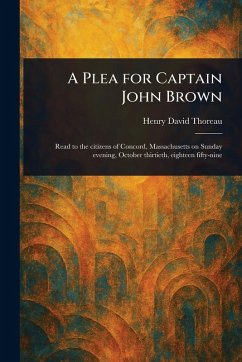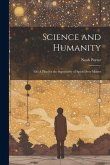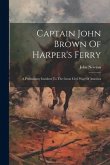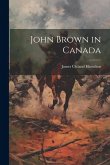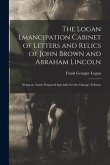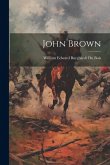Henry David Thoreau's powerful "A Plea for Captain John Brown" stands as a timeless defense of a controversial figure in American history. Delivered in the wake of John Brown's raid on Harpers Ferry, this passionate speech articulates a fervent argument against slavery and a compelling justification for Brown's actions. Thoreau, a staunch abolitionist, challenges the prevailing opinions of his time, offering a profound meditation on justice, morality, and the individual's responsibility to confront injustice. This historical text offers a crucial perspective on the events leading up to the Civil War. Explore the complexities of abolitionism and the tumultuous era surrounding John Brown's trial through Thoreau's eloquent and thought-provoking words. This meticulously prepared print edition preserves the integrity of the original text, allowing readers to engage directly with a pivotal moment in the fight for civil rights and a crucial piece of American political thought. A vital document for understanding the roots of the Civil War and the enduring struggle for racial equality. This work has been selected by scholars as being culturally important, and is part of the knowledge base of civilization as we know it. This work is in the public domain in the United States of America, and possibly other nations. Within the United States, you may freely copy and distribute this work, as no entity (individual or corporate) has a copyright on the body of the work. Scholars believe, and we concur, that this work is important enough to be preserved, reproduced, and made generally available to the public. We appreciate your support of the preservation process, and thank you for being an important part of keeping this knowledge alive and relevant.
Bitte wählen Sie Ihr Anliegen aus.
Rechnungen
Retourenschein anfordern
Bestellstatus
Storno

